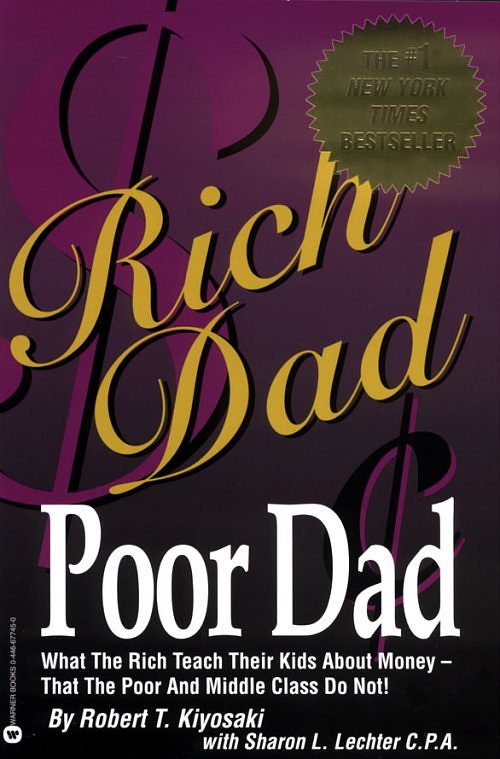Rich Dad, Poor Dad

|
Here are Amazon's statistically improbably phrases from this book:
educated dad, your financial intelligence, rich dad, safe secure job, financial literacy, fix toilets, cash flow pattern, asset columns, pay yourself first, expense column, poor dad
This book was a business/motivational financial book that encourages the reader to rethink wealth as "the amount of time that you could survive without working." Then the author goes through the implications of this definition and concludes (several times) that the best financial moves you can make involve buying assets that provide a return on investment rather than liabilities which cost money.
The author frames this in a story of two fathers that he grew up with, his own and his friends and demonstrated through the story of his interaction with these two men how conventional wisdom will put you in the poor house.
Its a good book to read for principles and to change your perspective on finances. It is clearly worshipping wealth above all else though, and I don't think that is healthy.
|
(Stuff That I've Read For "Fun")
Permanent Link made 07:30 AM
| Comments (2)
| TrackBack (0)
Comments
The book's conclusion ("the best financial moves you can make involve buying assets that provide a return on investment rather than liabilities which cost money.) is incredibly elementary. That said, I'm sure it will connect with many. Amazing how many books can be written on the same topic.
Posted by: Nate at May 6, 2005 05:39 AM
It's an elementary concept, but he does a good idea of showing how the decisions that people make all the time aren't achieving the goal of building a portfolio of assets. The examples he provides are pretty convincing. He also has a game called CASHFLOW that isn't a whole lot of fun, but is very educational about how to make good investments.
Posted by: Don at May 6, 2005 08:00 AM
Trackback Pings
TrackBack URL for this entry:

The book's conclusion ("the best financial moves you can make involve buying assets that provide a return on investment rather than liabilities which cost money.) is incredibly elementary. That said, I'm sure it will connect with many. Amazing how many books can be written on the same topic.
Posted by: Nate at May 6, 2005 05:39 AM